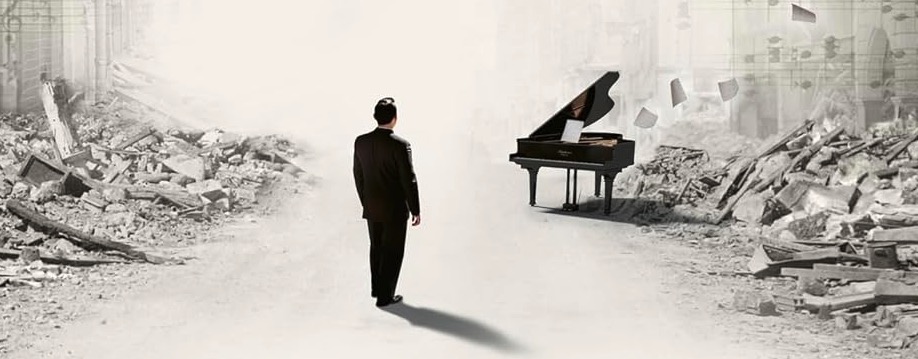Roxanne de Bastion’s The Piano Player of Budapest is a masterful blend of personal memoir, historical reflection, and a tribute to the transcendent power of music. Inspired by her Hungarian-Jewish grandfather Stephen’s survival during the Holocaust, the book offers a deeply poignant narrative that is as much about resilience as it is about the enduring legacy of art. Combining rigorous historical research with emotional storytelling, de Bastion creates a work that resonates on both intimate and universal levels.
A Story of Survival and the Power of Music
At the core of the narrative lies Stephen’s extraordinary life journey. From a rising star in the Budapest music scene during the 1930s to enduring the unfathomable horrors of World War II, his story is one of strength, creativity, and an unyielding spirit. His professional career, which included performances across Hungary and Switzerland, was abruptly halted by war. In 1942, Stephen was conscripted into forced labour, a brutal ordeal that included a gruelling march through the Russian winter and later internment at the Mauthausen and Gunskirchen concentration camps. Despite the atrocities, Stephen survived, one of only eight men from his original labour battalion to do so.
Stephen’s piano, a Blüthner baby grand, is a recurring symbol in the book. Passed down through generations, the piano serves as a tangible connection between past and present. For Stephen, it represented a thread of normalcy and a link to his artistry amid chaos. For Roxanne, it became a vessel for exploring her heritage and a symbol of resilience, not only for her family but for the human spirit itself.
Through her grandfather’s story, de Bastion illuminates the power of music as a lifeline and a form of resistance. Stephen’s ability to play the piano after the war became a way to reclaim his identity and humanity. The accompanying album curated by Roxanne, which features reimagined versions of Stephen’s compositions, adds a compelling layer to the narrative, allowing readers to experience his legacy in a sensory way.
Generational Trauma and Identity
One of the most striking aspects of the book is its exploration of intergenerational trauma. Roxanne candidly examines how her family’s experiences during the Holocaust have shaped her own identity and worldview. Growing up in a secular household with a British father and a Berliner mother, Roxanne was distanced from her Jewish heritage. Through writing this book, she uncovers how the trauma endured by her grandparents influenced her father’s life, from his reluctance to openly embrace his Jewish identity to his sense of caution around authority.
De Bastion’s reflections on identity add depth to the narrative, turning it into a profound meditation on what it means to belong. Her descriptions of her father’s fears—both those inherited from Stephen and those born of his own life experiences—are heartbreakingly relatable. These familial struggles reflect larger patterns of inherited trauma, showcasing how history lives on in the lives of descendants.
A Work of Historical and Artistic Depth
The book also stands out for its meticulous historical detail. Drawing from Stephen’s personal recordings, family archives, and extensive research, de Bastion paints a vivid picture of the pre-war Hungarian music scene and the devastating impact of the Holocaust. Her prose is evocative, capturing the vibrancy of Stephen’s early years as well as the stark horrors of the concentration camps. The emotional weight of these passages is profound, but it is balanced by moments of hope and humanity, particularly in Stephen’s enduring connection to his music.
Critics have widely praised The Piano Player of Budapest for its ability to merge personal and historical narratives. The Library Journal highlighted its “intimate and lyrical” style, calling it a “powerful exploration of resilience and hope.” Meanwhile, the Times Literary Supplement commended de Bastion for weaving her own journey into the story, creating a narrative that feels both deeply personal and universally significant. The Christian Science Monitor noted that the book is not only a memorial to Stephen but also a reminder of the enduring importance of confronting history to ensure it is never repeated.
A Call to Remember
In addition to recounting her grandfather’s story, de Bastion uses the book to address broader themes of memory and justice. She reflects on the injustices her family faced, such as the confiscation of property in Hungary and the lack of accountability for many perpetrators of Holocaust atrocities. These reflections remind readers of the importance of vigilance against prejudice and the need to preserve historical memory.
The book’s impact is heightened by Roxanne’s accompanying album, which brings Stephen’s music to a new audience. Songs like “Farewell to Budapest” and “Remember Me” evoke the pain and resilience captured in the book, creating an immersive experience that bridges past and present.
The Piano Player of Budapest is a triumph of storytelling that seamlessly intertwines history, art, and personal reflection. Roxanne de Bastion has crafted a deeply moving narrative that honours her grandfather’s legacy while exploring universal themes of resilience, identity, and the healing power of music. It is a book that will stay with readers long after they turn the final page, offering not only a window into the past but also a reminder of the enduring strength of the human spirit. For anyone interested in history, family memoirs, or the transformative power of art, this is an essential read.
You can buy The Piano Player of Budapest at all good book retailers – you can order from Amazon here.
